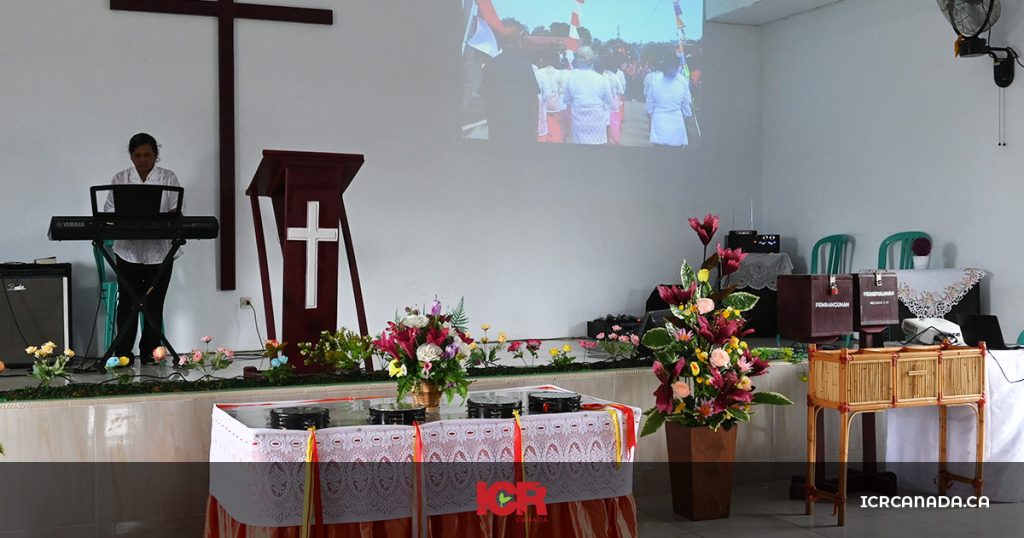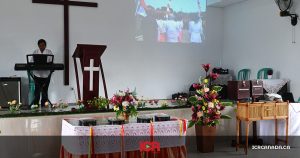Court Overturns Indonesia Church Eviction Order

In a rare turn of events, a court ruling has offered a ray of hope to a small Christian congregation in East Java, Indonesia, after months of conflict with local authorities. The legal battle centers around the Good God Church, whose place of worship was sealed by government officials last year under controversial circumstances.
A Worship Site Shut Down
On August 18, 2024, in Jombang Regency, East Java—about 50 miles west of the city of Surabaya—trouble came knocking for Pastor Herri Soesanto and his wife, Liliek Soenarto. That day, approximately 50 officials arrived at their church premises in the Simpang Tiga shop-housing complex. With little warning, they forcibly removed Pastor Herri from the building and sealed the church’s doors.
The authorities claimed the action was part of a broader campaign to reclaim shop units that the government insisted it owned. But for the members of Good God Church, the closure of their worship space felt deeply personal—and deeply unjust.
The church, located on the second floor of the couple’s shophouse (with the first floor operating as a business), had served as a spiritual home to a tight-knit congregation. The government’s decision to shut it down sent shockwaves through the community.
A Rare Legal Victory for Religious Freedom
Despite the setback, Pastor Herri and his supporters chose not to back down. On November 27, 2024, he filed a lawsuit challenging the eviction. While the initial case was unsuccessful, he pursued an appeal through the Surabaya State Administrative Court—and won.
In a landmark ruling on March 19, 2025, the court overturned the Jombang Regency Government’s eviction order. According to sources, the three-judge panel dismissed the defense’s objections and ruled in favor of the church.
“We greatly appreciate the verdict,” said Sonny Saragih, chairman of the Legal Assistance Institute HOPE, which represented Pastor Herri. “The judge has considered it wisely, and this is a step forward in upholding good governance.”
The ruling was a rare moment of reprieve for Christian congregations in Indonesia, where religious freedom is constitutionally guaranteed but often contested in practice.
However, the celebration was short-lived. Just eight days after the ruling, a government attorney named Yaumassyifa announced plans to appeal the decision, continuing the legal tug-of-war.
Questions Over Ownership and Rent
At the heart of the case lies a dispute over property rights and rent obligations. The local government argues that the land and buildings in the Simpang Tiga complex belong to the regency and that occupants must pay rent. Officials say Pastor Herri, like other tenants, failed to meet these financial obligations.
 “It is purely because Pastor Herri Soesanto as a tenant doesn’t pay the rent to the local government,” said Hadi S. Purwanto, an activist affiliated with the Jombang Regency Government. “It has nothing to do with the church.”
“It is purely because Pastor Herri Soesanto as a tenant doesn’t pay the rent to the local government,” said Hadi S. Purwanto, an activist affiliated with the Jombang Regency Government. “It has nothing to do with the church.”
But Pastor Herri sees it differently. He claims to have purchased the property outright from a private developer that had collaborated with the government to build the complex. His former attorney, Sri Sugeng Pujiatmiko, explained that the pastor believes he holds legal ownership of the building.
“Mr. Herri Soesanto bought it from a company that obtained management rights from the government,” said Pujiatmiko. “So, according to him, he has legal rights.”
This view is shared by other occupants in the complex, many of whom say they were never informed that the land was subject to a rental scheme. Pastor Herri explained that the original developer never disclosed this to buyers and that shop owners had been using a government-issued building-use rights certificate since 2016. While the certificate had technically expired, it is not uncommon in Indonesia for such documentation to be renewed or overlooked so long as payments and taxes are up to date.
However, in 2022, the local government reversed course and demanded that buyers pay back rent, including a fee of 19,105,000 Indonesian rupiah (about $1,228 USD) annually from 2016 to 2021. This sudden financial demand blindsided many occupants and has been a major source of contention ever since.
What Comes Next for Good God Church?
As the legal battle continues, Good God Church remains in limbo. The ruling from the Surabaya court has momentarily protected the congregation’s rights, but the government’s appeal could still reverse the decision. In the meantime, Pastor Herri and his congregation are holding on to hope.
Religious freedom advocates are watching the case closely. Though Indonesia recognizes six official religions and guarantees freedom of worship, local regulations and social tensions often complicate church construction and registration—particularly in regions with Muslim majorities.
The case of Good God Church is emblematic of broader challenges facing minority religious groups in the country. While the court's decision was a win for Pastor Herri and his church, the appeal process underscores how fragile such victories can be.
“We just want to worship in peace,” said one member of the congregation. “We’re not asking for special treatment. We only want to practice our faith without interference.”
As the legal dust settles, the community continues to gather, pray, and stand in solidarity. Whether or not the appeal changes the outcome, the story of Good God Church has already become a symbol of resilience and determination.
For now, the church remains open—and so does the hope that justice, in the end, will prevail.
